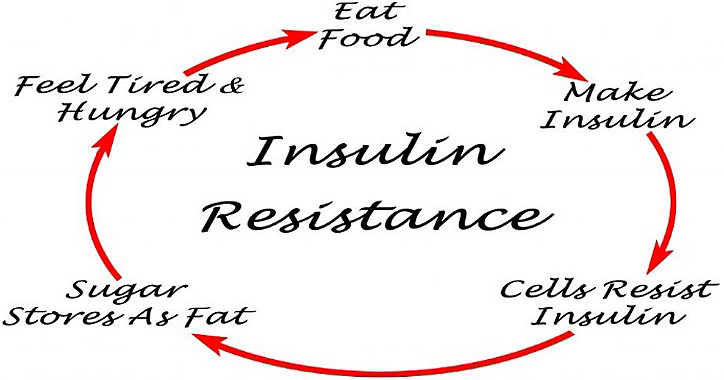For years many health experts attributed weight gain to simply eating too much: a spike in caloric intake with a combination of little or no exercise. However there are other causes of weight gain which suggest that the causes of obesity are more complicated than calories. One of the newer popular theories is that insulin resistance is a significant cause of weight gain. The implications of this theory could inspire new food products or changes in dietary recommendations for people who are struggling with excess weight.
Insulin is a hormone that is released by the pancreas. When one consumes food, the body senses this and sends a signal to the pancreas, which then releases insulin. The body releases insulin in response to fats, glucose and amino acids in meals; however, the secretion is at its highest level when consuming foods that are high in sugar content.
Once insulin is released, glucose from food enters the body’s cells. The issue with your body being loaded with glucose is that the body’s metabolism begins to shift. The most challenging side affect is the breakdown of fat slows down dramatically and new fat begins to be synthesized. Insulin truly does redirect extra glucose into fat cells and triggers what is known as “adipogenesis” – otherwise known as a synthesis of fat.

Various health professionals are unclear about which comes first: obesity or insulin resistance. The two factors can create a mutually reinforcing effect: obesity is known to result in insulin resistance, and insulin resistance can cause more weight gain.
The renowned surgeon Dr. Peter Attia is well known for developing the pre-diabetes diagnosis several years ago as well as developing treatments to successfully reverse diabetes. He is also the founder of Attia Medical, PC, which focuses on the science of longevity and applies nutrional biochemistry, sleep physiology, lipidology, and pharmacology techniques to increase distress tolerance, and augment lifespan (primarily by delaying the onset of chronic disease).
In a blog post, Dr. Attia explores the question of whether it is insulin resistance that is leading to weight gain and creating obesity. He goes on to state, “Most researchers believe obesity is the cause of insulin resistance. Logically, then, if you want to treat insulin resistance, you get people to lose weight, right? You treat the obesity. But what if we have it backwards? What if obesity isn’t the cause of insulin resistance at all? What if obesity is a coping mechanism for a far more sinister problem going on underneath the cell? I’m not suggesting that obesity is benign, but what I am suggesting is it may be the lesser of two metabolic evils.”
He goes on to question if it is actually insulin resistance that can lead to obesity, if so, if the resulting weight gain is simply a natural response to the problem of insulin resistance. He appears to be deeply rooted in his belief that insulin resistance does indeed cause weight gain.
Obesity is an incredibly challenging issue to solve, especially when it comes to those who suffer from insulin resistance. There is not a 100 percent obvious answer. Leading a healthier lifestyle and avoiding certain foods high in glucose seem to be a good first step to reducing insulin resistance; however, it will be interesting to continue to learn new developments on these theories. “Insulin resistance” could become a new condition that is top-of-mind for US consumers, and also could become a target for functional foods or special diets. Food companies should pay attention to the insulin resistance and obesity debate as a possible area for future NPD innovation.
All Innova Market Insights material is copyrighted. The terms of use for this resource are contained in our standard Terms and Conditions.









